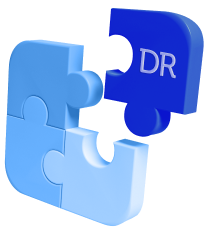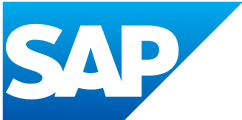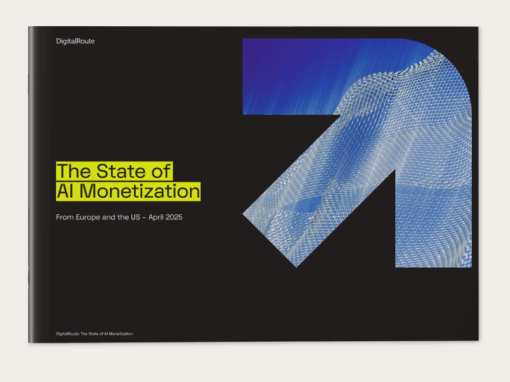In this blog, we’ll examine some of the highlights from Deloitte’s report on XaaS, discuss some of the key challenges for XaaS providers, and show why accurate data is the foundation for any XaaS model.
The good news for XaaS providers is that Deloitte reports that three-quarters of respondents in its survey said that their organization already runs more than half of its enterprise IT as-a-service. The COVID-19 pandemic rapidly accelerated the adoption of XaaS, as enterprises needed more flexibility in their IT operations and new IT tools to support remote working.
Deloitte’s report, Enterprise IT: Thriving in disruptive times with cloud and as-a-service, is based on a survey of 600 IT and line-of-business professionals responsible for XaaS at large US organizations where at least 15% of enterprise IT is consumed as-a-service.
If you don’t already know what XaaS is, Deloitte defines XaaS as products, tools, and capabilities that are delivered to users as services. So, instead of requiring up-front purchases or licensing, the XaaS model allows customers to consume and pay for IT services based on what they need and use, typically through a subscription or pay-per-use.
Overall Deloitte found that enterprises are increasingly using XaaS for their IT operations, but XaaS adopters want more out of the services and relationships that XaaS vendors provide.
Three key trends from the Deloitte XaaS report
1. The COVID-19 pandemic has accelerated the shift to XaaS
The COVID-19 pandemic led to rapidly changing IT needs, which meant that enterprises needed to become more agile and flexible to respond to these fluctuations. In 2020, 75% of those surveyed reported their organization consumes more than half its enterprise IT as-a-service, up from 71% in 2018. And 25% reported over three-quarters of their enterprise IT is XaaS, up from 16% in 2018.
2. Enterprises use XaaS to increase agility and become more competitive
Deloitte’s survey found that 82% of respondents said that XaaS has accelerated experimentation by allowing their company to rapidly try out and evaluate new solutions. XaaS gives enterprises access to cutting-edge features and technologies, helps them create new business models, and enables new services to be launched faster. Six in 10 said that XaaS gives them a competitive edge.
3. As XaaS grows, enterprises will need to work harder to differentiate their offering
More than eight in 10 of respondents said their companies already use software-as-a-service (SaaS), infrastructure-as-a-service (IaaS), and/or platform-as-a-service (PaaS). While XaaS gives enterprises a competitive edge, the rapid adoption of XaaS will require them to adopt more advanced or emerging XaaS technologies to stay in the lead, such as using edge computing as a service.
The challenges XaaS providers must overcome
Despite the growing adoption of the XaaS model, 93% of XaaS customers report challenges scaling up their XaaS efforts. The four top concerns of XaaS customers are: data security and privacy, inadequate IT skills to deploy and manage XaaS, unpredictable costs, and difficulty integrating with other systems.

Two-thirds of XaaS customers said their XaaS provider could do more to continually improve services based on what they learn from an organization’s usage.
In addition, only three in 10 XaaS customers are satisfied to stay with their current XaaS providers, with the remainder open to exploring new relationships. The Deloitte survey found that XaaS customers are seeking more consultative relationships with their providers that can help them solve their ongoing issues.
“With so much potential to lose existing customers to pastures perceived as greener, it’s essential for XaaS providers to critically examine how they can better address customer needs and differentiate themselves,” the report states. “There’s clearly work to be done to reimagine and develop mutually beneficial, value-based relationships between XaaS providers and adopters that are consistently focused on customer success.”
In fact, 82% of adopters agree their organization could achieve better outcomes if their XaaS providers behaved more as consultative partners.
Key to XaaS success: Correct data, easy integrations and understanding usage
At DigitalRoute, we’ve been helping enterprises offer anything as a service for more than 20 years. We’ve seen how our customers benefit from XaaS – from creating new business models, offering new services, and building stronger relationships with their customers by understanding how services are used.
But we also recognize the challenges outlined in the Deloitte report, and we’ve seen what can go wrong for XaaS providers when they aren’t solved – lost revenue due to incorrect data processing, lack of control of how much of a service is used, compliance issues, and subpar customer experiences that lead to lost opportunities.

The foundation of any digital service is data, and if you don’t have accurate, real-time data that you can trust, your revenue and customer relationships are at risk.
We help enterprises solve these data challenges with our Usage Engine. Our Usage Engine tracks how customers use your services, and turns this usage data into clean records that can be used across your operations. With accurate usage data you can improve customer experiences, offer upsells at the right time, and speed up invoicing.
The Usage Engine also integrates with any type of system. As enterprises look to diversify their XaaS offering, integrations across platforms and ecosystems will be essential. Our Usage Engine acts as a data processing hub connecting all of your operations, sending clean data back and forth between ERP, CRM and CPQ systems, IoT platforms, billing platforms, entitlement management systems, and business intelligence systems.








